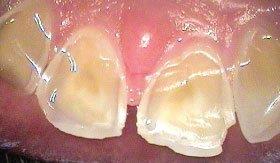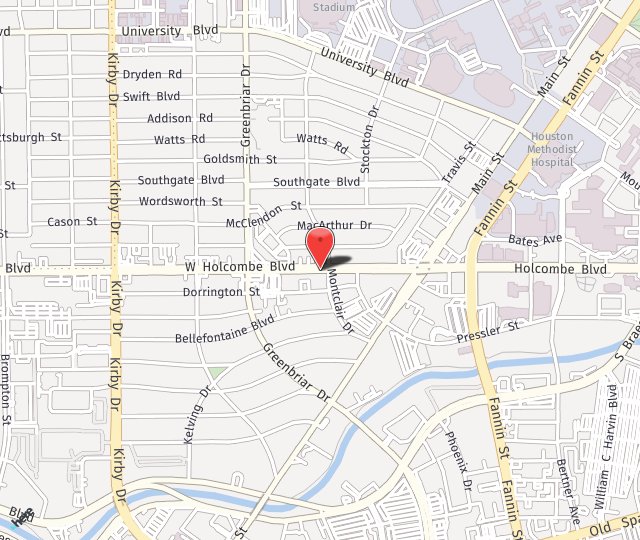When we think about bulimia, TMJ pain and dental problems such as eroded and worn teeth are usually not what first comes to mind. The damage to one’s oral health is often overlooked until the damage is done. There are so many emotional, social, and psychological factors involved with this disease that often times the teeth are not considered.
Dental practitioners can be an instrumental health professional in identifying the early signs of bulimia, which are often displayed in a person’s mouth and in the condition of their teeth. In some instances, an individual can live with bulimia for years before receiving help or being officially diagnosed with this mental health disorder. Interestingly the initial telltale sign of an eating disorder can often be noticed by the damage to the teeth. Most often the initial damage occurs on the tongue side of the upper front teeth. There will be signs of the enamel wearing away. The photo below shows an example of this erosion.
This occurs as the acid from the regurgitation eats away at the enamel. This wear can eventually lead to extreme tooth sensitivity and TMJ pain. The sensitivity occurs as there is no enamel to protect the nerve of the tooth and the second layer of tooth becomes exposed. The continued vomiting causes a continued host of problems for patients:
- Dry mouth
- difficulty in chewing and swallowing
- dental decay
- sore throats
- sometimes affects ones voice
- breaking of teeth
- Fillings that are higher than the teeth or enamel
- sensitivity and painful teeth
- -sore throat
- inflammed or red and tender gums
- darkening of the teeth
As the enamel continues to degrade, the way the teeth meet together starts to change which very often leads to TMJ problems. TMJ problems are jaw joint problems that can cause :
-clicking and popping pain
-headaches
-difficulty chewing
-pain to chewing
-facial asymmetry
-neck and shoulder pain
-jaw pain
-dizziness and many more
Dentists who understand this disease can help treat many of these issues, however, medical treatment is truly needed to help patients with the underlying cause of the problem. There are some techniques that can be used to help try and prevent these dental problems from getting worse but ultimately,these are serious issues and health problems. Swishing with baking soda dissolved in water after vomiting can help to neutralize the acid in the mouth to decrease the damaging potential. Another protective method is using professional fluoride trays to help strengthen the teeth and also to protect the teeth when vomiting.
An important note for patient to remember is that brushing after vomiting is detrimental as it is allowing for more erosion. It is better to swish with water or baking soda disssolved in water.
Interestingly, other issues can also cause similar problems. These can include gastric acid reflux from GI problems or as a side effect of sleep apnea. Another is from sucking on lemons. The same problems occur on teeth as they are all acid attacks on the teeth. Professional rinses can help as well. It is so important to try and begin these protective methods as early as possible during the disease.
Having painful teethe and unsightly teeth often causes additional emotional, psychological, and financial strain on bullimic patients. If you know of loved ones or friends who are bulimic, encourage them to seek dental care from dentists with special interest in caring for these types of cases. It is best to be proactive to help save the teeth as opposed to having complex dental work to restore them after the damage is done. The good news is that there are ways to help restore these individuals smiles and dental health!
If you have any questions about Houston TMJ or Houston Cosmetic Dentistry, please feel free to call our office, Ronald W. Konig DDS, FAGD, LVIF, 713-668-2289.


